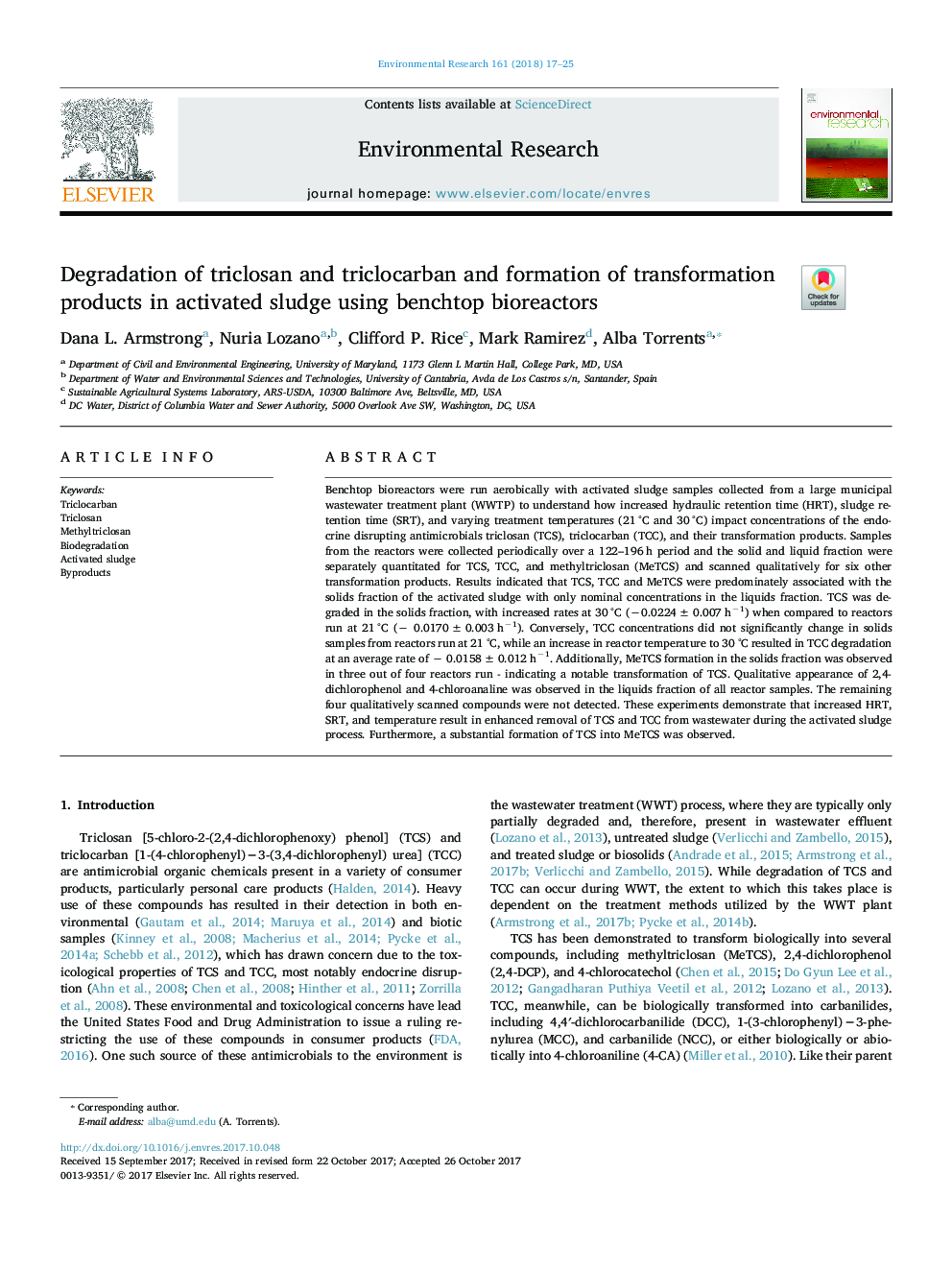| Article ID | Journal | Published Year | Pages | File Type |
|---|---|---|---|---|
| 8869232 | Environmental Research | 2018 | 9 Pages |
Abstract
Benchtop bioreactors were run aerobically with activated sludge samples collected from a large municipal wastewater treatment plant (WWTP) to understand how increased hydraulic retention time (HRT), sludge retention time (SRT), and varying treatment temperatures (21 °C and 30 °C) impact concentrations of the endocrine disrupting antimicrobials triclosan (TCS), triclocarban (TCC), and their transformation products. Samples from the reactors were collected periodically over a 122-196 h period and the solid and liquid fraction were separately quantitated for TCS, TCC, and methyltriclosan (MeTCS) and scanned qualitatively for six other transformation products. Results indicated that TCS, TCC and MeTCS were predominately associated with the solids fraction of the activated sludge with only nominal concentrations in the liquids fraction. TCS was degraded in the solids fraction, with increased rates at 30 °C (â0.0224 ± 0.007 hâ1) when compared to reactors run at 21 °C (â 0.0170 ± 0.003 hâ1). Conversely, TCC concentrations did not significantly change in solids samples from reactors run at 21 °C, while an increase in reactor temperature to 30 °C resulted in TCC degradation at an average rate of â 0.0158 ± 0.012 hâ1. Additionally, MeTCS formation in the solids fraction was observed in three out of four reactors run - indicating a notable transformation of TCS. Qualitative appearance of 2,4-dichlorophenol and 4-chloroanaline was observed in the liquids fraction of all reactor samples. The remaining four qualitatively scanned compounds were not detected. These experiments demonstrate that increased HRT, SRT, and temperature result in enhanced removal of TCS and TCC from wastewater during the activated sludge process. Furthermore, a substantial formation of TCS into MeTCS was observed.
Related Topics
Life Sciences
Environmental Science
Health, Toxicology and Mutagenesis
Authors
Dana L. Armstrong, Nuria Lozano, Clifford P. Rice, Mark Ramirez, Alba Torrents,
